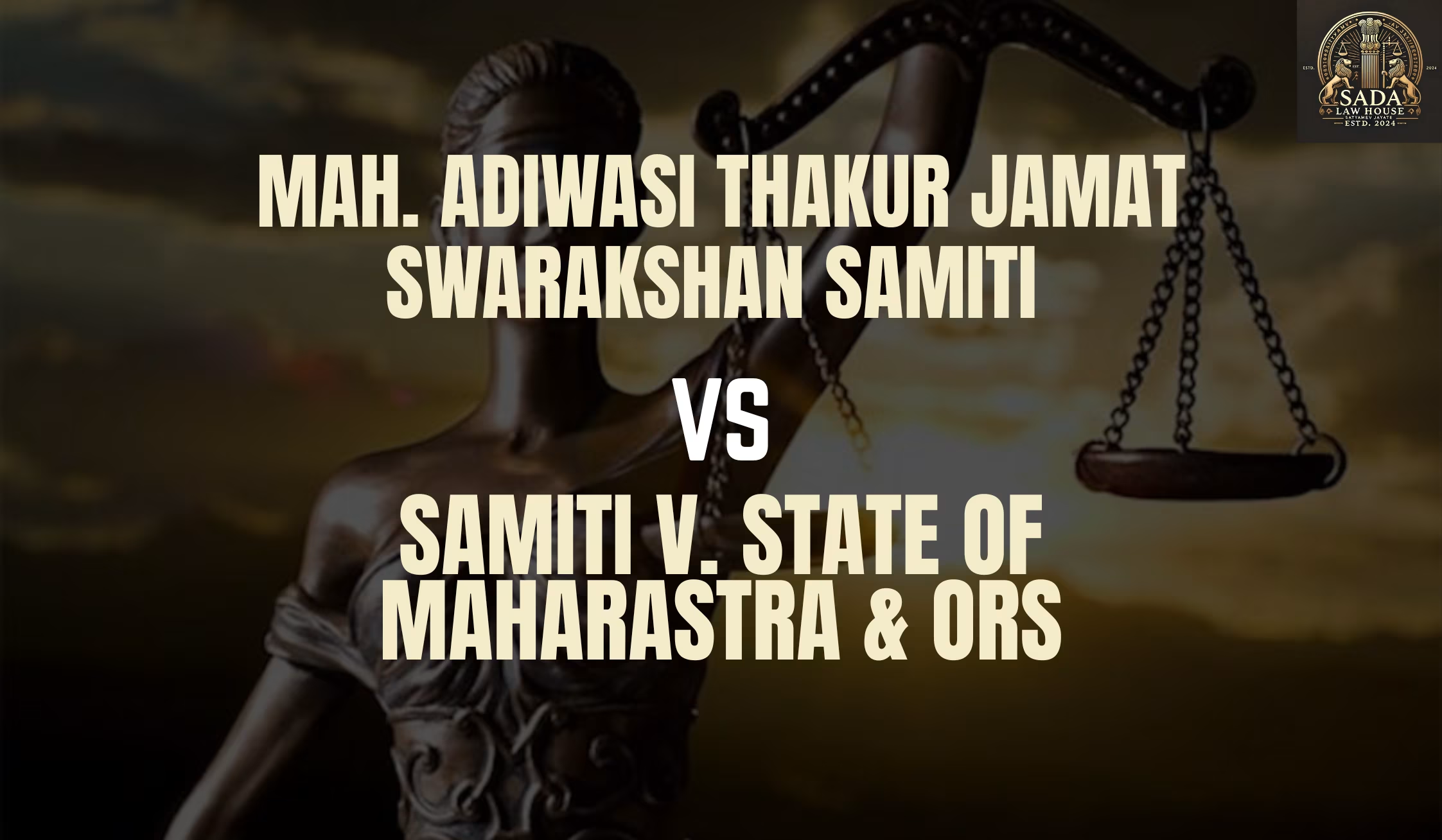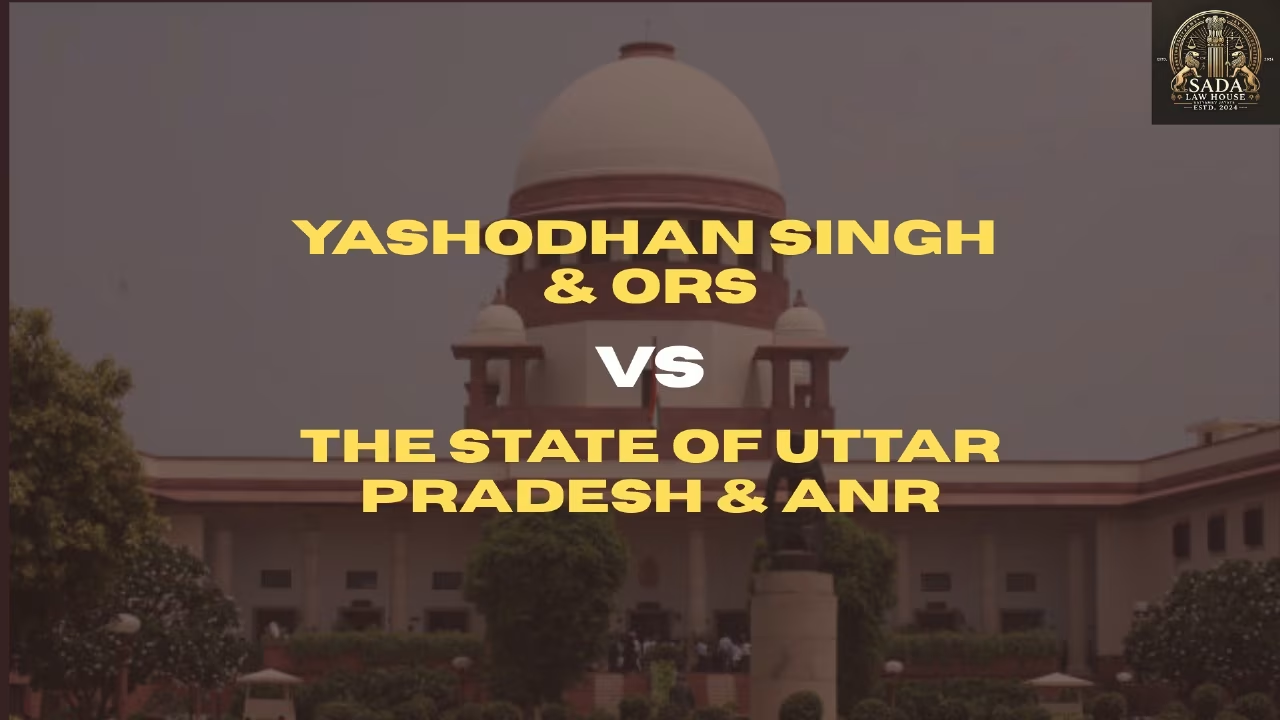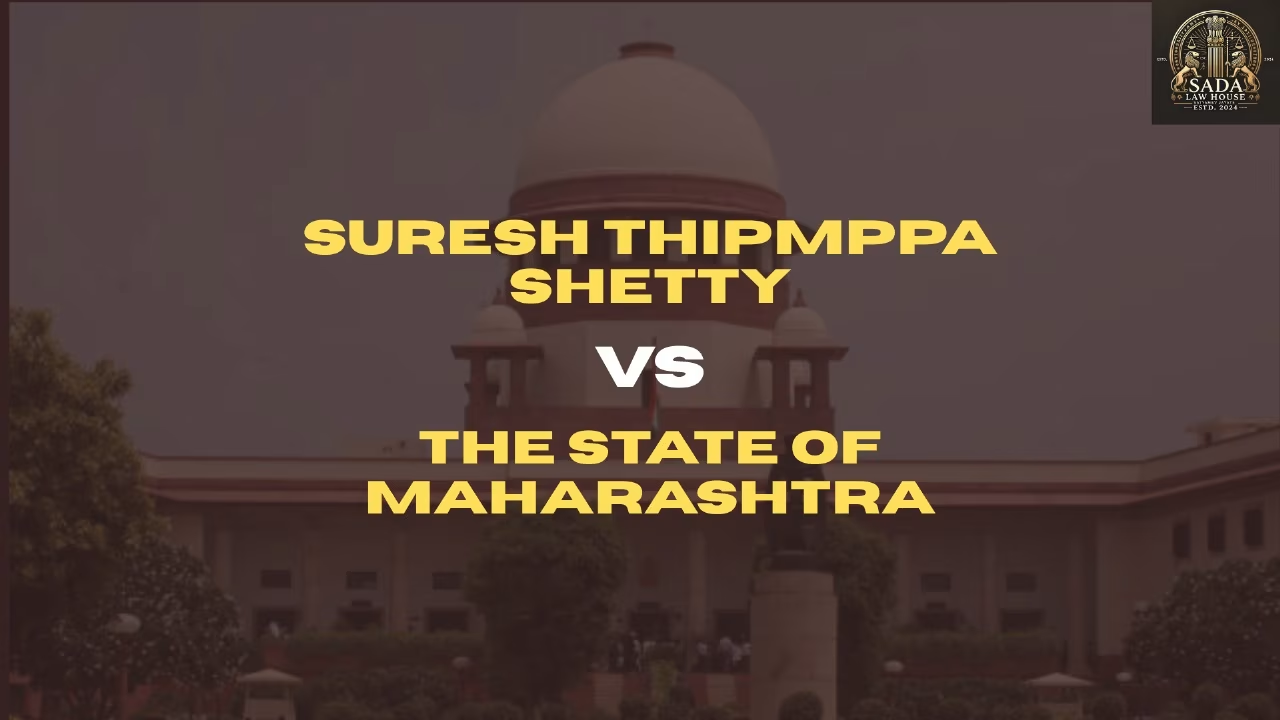Supreme Court Judgment on Affinity Test in Scheduled Tribe Verification: Affinity Test Not Mandatory for ST Claims
- REHA BHARGAV
- 20 June 2025

The Supreme Court clarifies that the affinity test is not mandatory for verifying Scheduled Tribe (ST) claims. Documentary evidence remains primary for ST status verification in Maharashtra and across India.
Introduction
The landmark case of Mah. Adiwasi Thakur Jamat Swarakshan Samiti v. State of Maharashtra & Ors. (March 24, 2023) addresses the critical issue of verifying Scheduled Tribe (ST) status in India, focusing on the “Thakur” community in Maharashtra. This judgment by the Supreme Court of India highlights the role of the affinity test in caste verification and clarifies that it cannot be used as the sole determinant for granting or denying ST status.
Background and Facts of the Case
The dispute arose from concerns over fraudulent claims to Scheduled Tribe status, which grant access to benefits such as reservation in education, employment, and political representation. Maharashtra’s Scrutiny Committees and Vigilance Cells used the affinity test—a method assessing claimants’ knowledge of tribal customs—to verify ST claims.
However, genuine claimants were reportedly rejected based solely on failing this test, despite submitting valid documentary evidence like ancestral caste certificates, school records, and revenue documents.
Previous conflicting judgments on the affinity test created confusion, prompting the Supreme Court to clarify the legal position.
Key Issue in the Case
Is the affinity test a mandatory and conclusive method for verifying Scheduled Tribe claims, or should it only be supplementary when documentary evidence is inconclusive?
Arguments Presented
Petitioner’s Viewpoint
Over-reliance on the affinity test is arbitrary and dismisses valid documentary evidence.
Tribal customs evolve due to modernization and urbanization, making affinity tests less reliable.
Documentary evidence should have primacy over anthropological tests.
The affinity test was sometimes misused without proper justification or recorded reasons.
Conflicting judicial precedents necessitate clarity.
Improper use of the affinity test leads to wrongful denial of rights for genuine tribals.
Respondent’s Viewpoint
The affinity test helps prevent misuse of ST certificates by non-tribals.
Past judgments support the affinity test as an integral verification tool.
Verification should be holistic, combining affinity tests, documentary evidence, and field inquiries.
Vigilance Cells have authority to conduct affinity tests and background investigations.
Rejection is justified if claimants fail the affinity test and have questionable documentation.
Strict scrutiny is essential to protect the reservation system’s integrity.
Supreme Court Judgment Highlights
Affinity Test Is Not Conclusive: The Supreme Court ruled that the affinity test cannot be the sole or mandatory test for verifying ST claims; it is only a supplementary tool when documentary evidence raises doubts.
Primacy of Documentary Evidence: Documentary proof such as caste certificates, historical records, and official documents remain the primary basis for ST status verification.
Recognition of Cultural Evolution: The Court acknowledged that tribal customs evolve due to urban migration and social integration, meaning unfamiliarity with traditional customs alone cannot disqualify a claimant.
Limited Role of Vigilance Cells: Vigilance Cells should be involved only when necessary and after specific doubts are recorded by Scrutiny Committees.
Reconciliation of Conflicting Judgments: The Court clarified earlier contradictory rulings and overruled the idea that failure in the affinity test is fatal to ST claims.
Directions for Scrutiny Committees: Committees must prioritize documentary verification, exercise caution with affinity tests, and provide reasoned decisions respecting constitutional rights.
Conclusion
The Supreme Court’s judgment provides a balanced framework for verifying Scheduled Tribe claims. While the affinity test may serve as a useful supplementary tool, it cannot replace documentary evidence as the foundation for determining ST status. The ruling protects genuine tribal claimants and safeguards the integrity of the reservation system by preventing arbitrary rejections based solely on cultural unfamiliarity.
Case Laws






